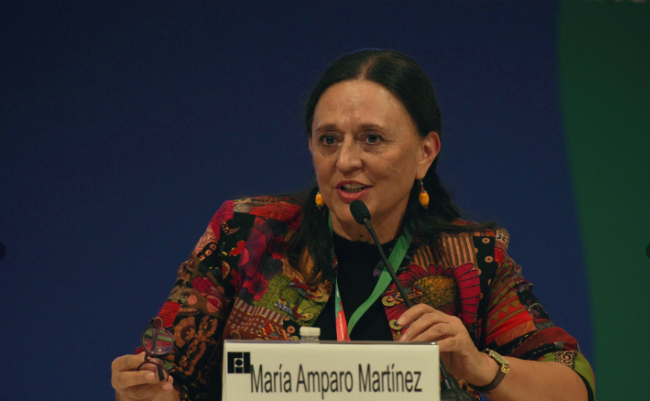RIO DE JANEIRO, BRAZIL – The countries of Latin America must promote their adaptation to climate change and make this transformation permanent, said Wednesday (8) the director-general of the National Institute of Ecology and Climate Change of Mexico, Maria Amparo Martinez.
“Actions for adaptation are unavoidable and should be happening on a large scale in all countries,” said the official during her participation in the “High-Level Dialogue on Climate Action in the Americas,” co-organized by Argentina, Barbados, Chile, Colombia, Costa Rica, Panama, and the Dominican Republic.
Read also: Check out our coverage on Mexico
Martínez pointed out that work has been done to generate adaptive capacity in all sectors and levels of society.

However, she affirmed that it is essential to promote knowledge, education, and sustainable practices from the community to the national level.
She explained that adaptation to the climate crisis is local and dynamic. Furthermore, work must be done to generate adaptive capacity in all sectors and levels of society.
She explained that in Mexico, adaptation has been addressed with three approaches: ecosystem-based, community-based and risk reduction.
She stated that the country has a national vulnerability atlas that provides technical and scientific information for decision-making. In addition, as an example, it has a monitoring system that detects changes in mangroves with periodic evaluation and surveillance of both natural and social attributes.
She highlighted initiatives such as the development of forests, active conservation projects, and sustainable forest management. She pointed out that the Sembrando Vida reforestation program, created by President Andrés Manuel López Obrador, has the social objectives of rescuing the countryside and combating poverty and has made it possible to advance the country’s climate goals. “It was promoted as a productive restoration and land regeneration program,” she said.
She affirmed that although there is still a long way to go, “progress is being made”. However, she pointed out that the continuity of this type of program must be guaranteed so that they constitute a “real” transformation in production practices. “We must not lower our guard in continuing to identify strong measures for adaptation and mitigation,” she concluded.
At the meeting, the leaders of the organizing countries discussed how to improve “climate ambition” in the run-up to the UN Climate Change Conference (COP26) 2021, to be held in the Scottish city of Glasgow from October 31 to November 12.
Among them were the presidents of Argentina, Alberto Fernández; of Colombia, Iván Duque; of Costa Rica, Carlos Álvarez Quesada; of Panama, Laurentino Cortizo; and of the Dominican Republic, Luis Abinader; and the prime minister of Barbados, Mia Amor Mottley.

